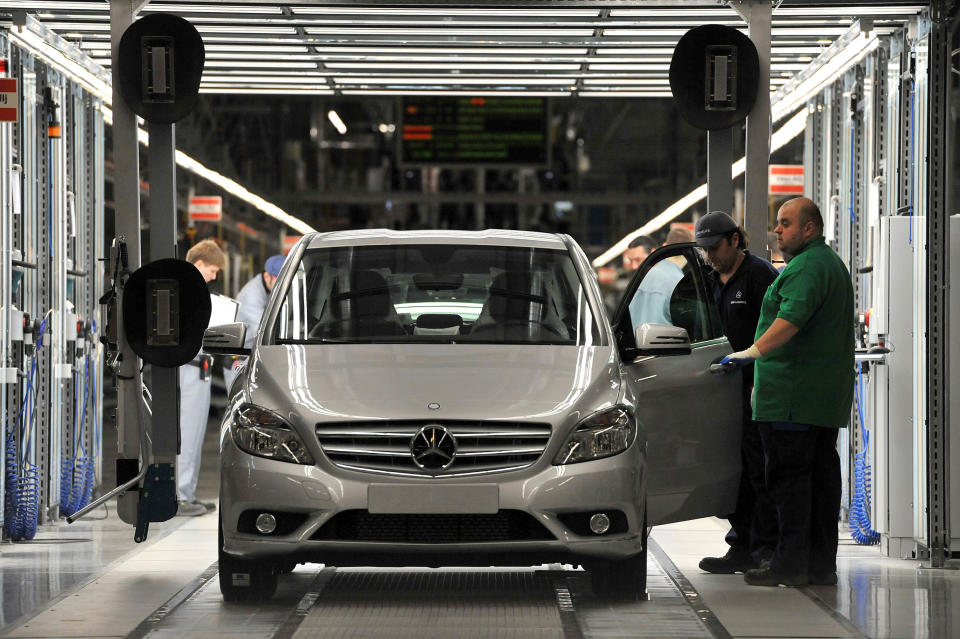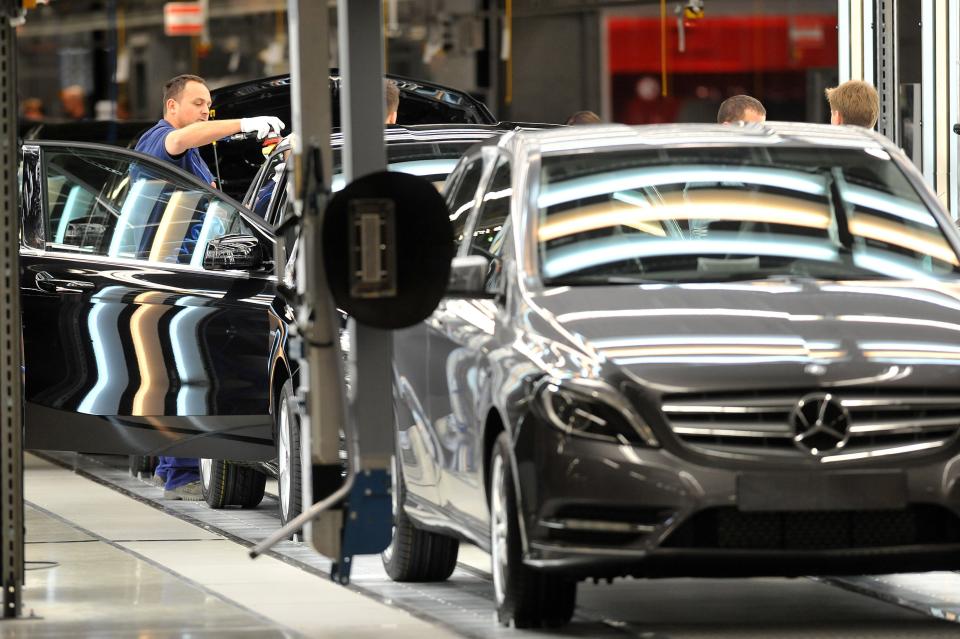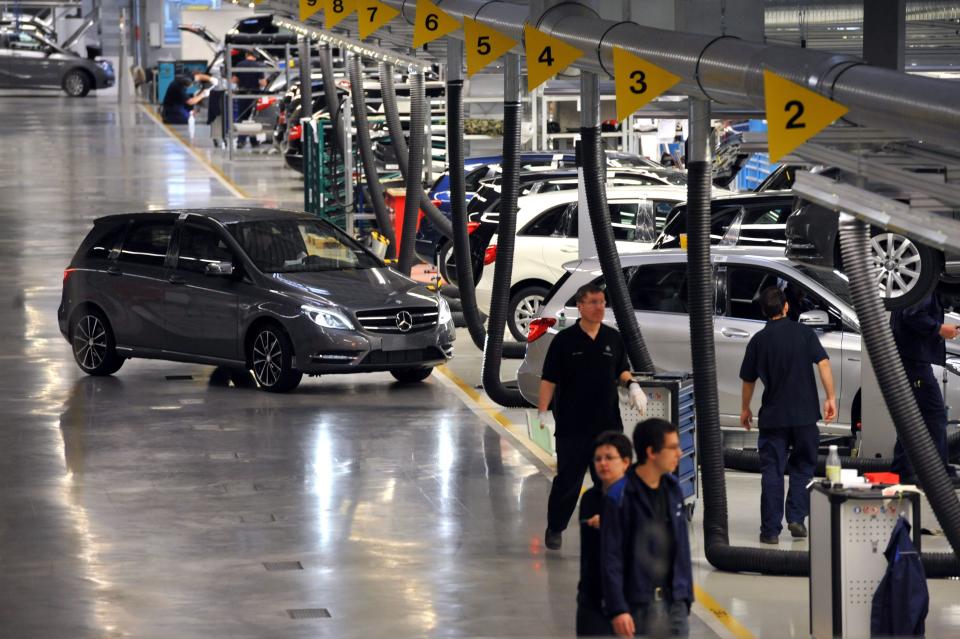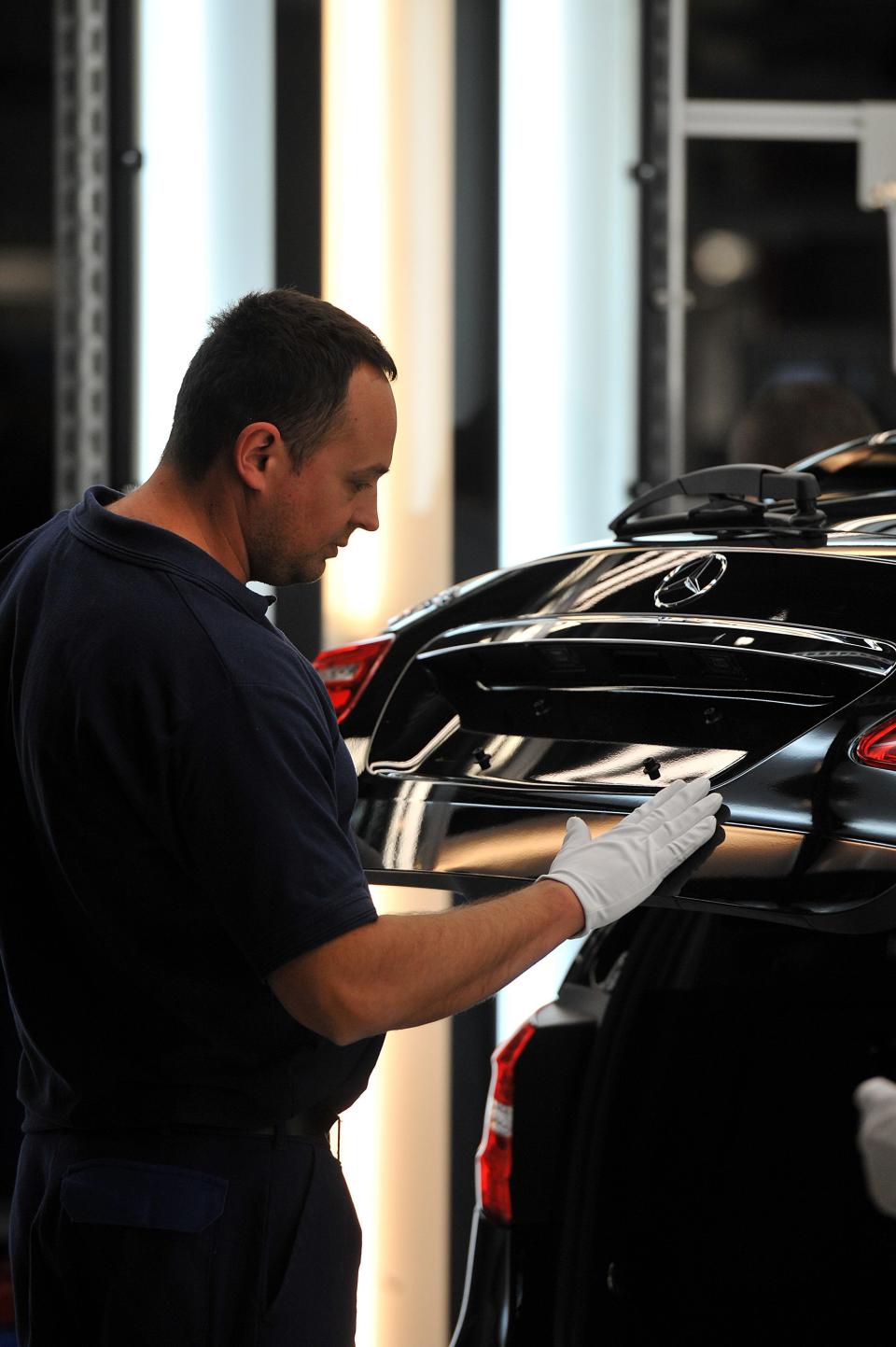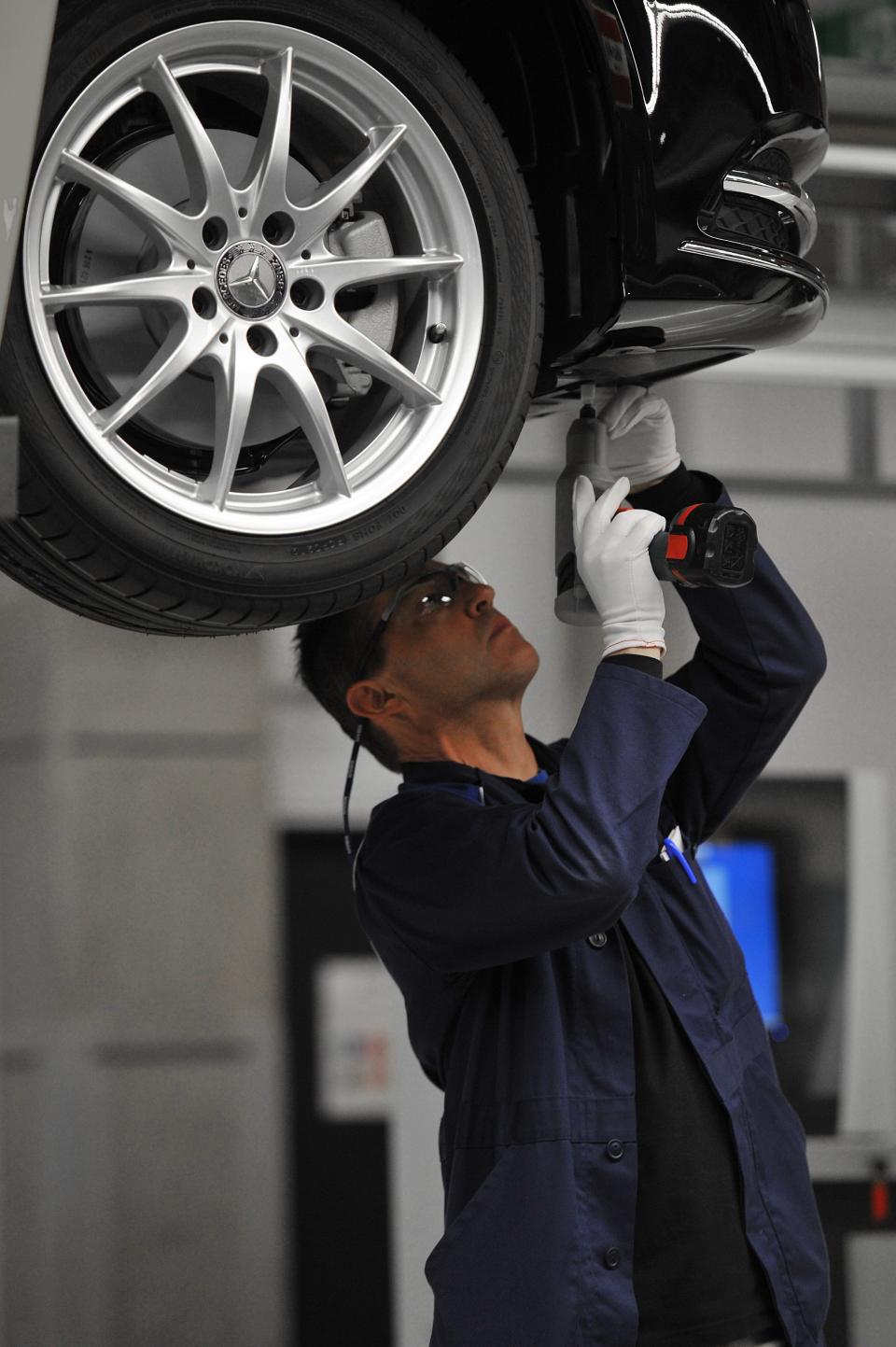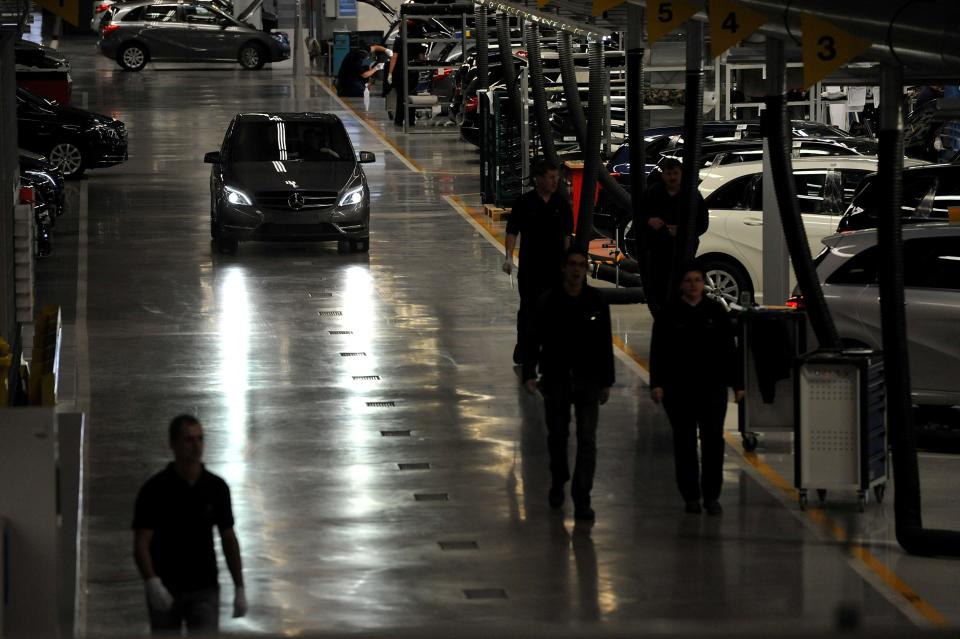Mercedes-Benz opens new plant in Hungary
KECSKEMET, Hungary (AP) — German luxury car maker Mercedes Benz inaugurated a new manufacturing plant in Hungary on Thursday, the company's first in Eastern Europe.
The plant was built at a cost of €800 million ($1.06 billion) in the central Hungarian city of Kecskemet, 100 kilometers (62 miles) southeast of Budapest, the capital. It will employ 3,000 people and create a further 10,000 jobs for suppliers.
Hungarian Prime Minister Viktor Orban, Dieter Zetsche, CEO of Mercedes' parent company Daimler AG, and plant director Frank Klein launched the assembly line for the company's B-Class cars.
"This plant is an important milestone of our growth strategy," Zetsche said. "Kecskemet is a model plant, an ideal factory in flexibility, efficiency and quality. We are setting new standards."
Expected to produce up to 120,000 cars a year, the plant is one of the largest-ever direct investments in Hungary and a welcome bright spot amid an otherwise difficult economic situation.
Hungary has been waiting since late last year to begin formal talks with the European Union and the International Monetary Fund with the aim of obtaining financial assistance, but it must first modify several laws, including those regulating the central bank, the judiciary and data protection, to made them compliant with EU rules.
Stagnant consumer demand, rising inflation and lethargic job creation are among the main challenges facing the Hungarian economy, which some analysts expect to fall into a mild recession in 2012.
The Mercedes plant is considered to be the biggest among several ongoing development projects by car manufacturers in Hungary, including expansions at plants belonging to Audi, the luxury brand of German car maker BMW, and Opel, General Motors' European brand.
Orban's government has been criticized for its erratic economic policy and extraordinary taxes on business sectors like banking, telecommunications, and retail.
While Daimler's decision to build its plant in Hungary was made under a previous, Socialist-led government — which pledged subsidies totaling 30 billion forints (€101 million, $135 million) to secure the investment — Zetsche said the current administration gave it no reason to regret its choice.
"We selected this site from a number of alternatives in Hungary and other countries," Zetsche said of the 441-hectare (1,090-acre) plot, formerly farmland. "We are as happy with the selection today as we were when we made it."
Zetsche was also upbeat about the prospects of car manufacturing, even though vehicle sales in Europe fell 9 percent on the year during the first two months of 2012.
"When we started building this plant in 2009, the indicators of the global economy were pointing toward a downturn," he said at the inaugural ceremony. "There were more than a few experts who said the automotive industry would never return to the level before the crisis, let alone experience growth. These experts have been proven wrong."
"For Mercedes Benz, 2011 was the most successful year in the history of the company and in 2012 we are going for another record."
In 2011, Daimler sold 2.1 million vehicle, with revenues of €106.5 billion ($141.3 billion) while employing over 271,000 people.
Orban said Daimler was looking to be a long-term investor in Hungary.
"This is not an investment, it's an alliance," Orban said, adding that car manufacturing accounted for nearly 10 percent of Hungary's economy. "I hope Mercedes in Kecskemet will be a new chapter in the great history of German-Hungarian economic cooperation."

